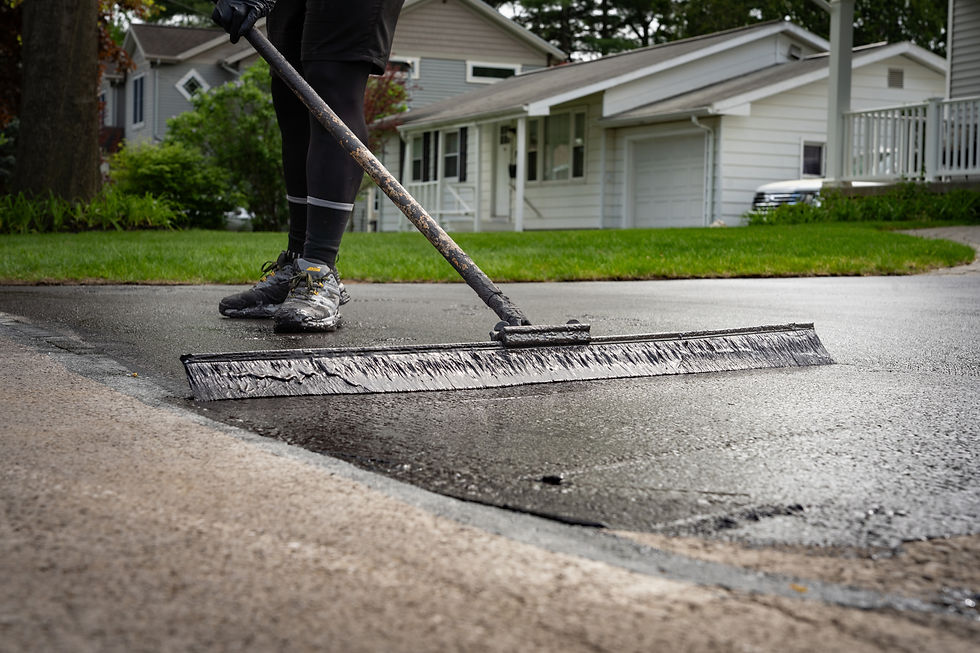How Often Should You Sealcoat Your Driveway?
- Upstate Team
- Aug 6, 2025
- 2 min read

If you’re wondering how often to sealcoat your driveway, you’re not alone. Many homeowners know sealcoating is important for driveway maintenance, but they’re unsure exactly when to do it. Sealcoating is more than just making your driveway look nice, it’s a protective barrier that shields asphalt from UV rays, rain, snow, ice, and daily wear from vehicle traffic.
At Upstate Asphalt & Sealcoating, we recommend following a sealcoating schedule that keeps your asphalt strong, attractive, and well-protected, saving you from costly repairs down the road.
How Often Should You Sealcoat Your Driveway?
The general rule for asphalt driveway maintenance is to sealcoat every 2–3 years. This ensures your pavement has a consistent protective layer to prevent water penetration, UV breakdown, and chemical damage.
However, your exact sealcoating schedule can depend on:
Traffic Volume – Driveways with heavy vehicle use may need sealing closer to every 2 years.
Weather Conditions – In Upstate New York, harsh winters, snow removal, and road salt speed up asphalt wear.
Surface Condition – If your asphalt shows signs of fading, cracking, or roughness, it’s time for a fresh sealcoat, even if it hasn’t been the full 3 years.
The Best Time to Sealcoat Your Driveway
For Upstate NY homeowners, the best time to sealcoat is late spring through early fall, when temperatures are warm and dry enough for proper curing. Ideally, daytime temps should be at least 50°F and rising, with no rain in the forecast for 24 hours.
Avoid sealing too early in spring or too late in fall when temperatures are unstable. Timing your sealcoating schedule in the warmer months ensures a stronger bond and longer-lasting results.
Signs It’s Time for Your Next Sealcoat
Sealcoating isn’t just about looks, it’s essential to protecting your asphalt from the elements, extending its lifespan, and avoiding expensive repairs. If you notice any of the following signs, it’s time to schedule service with Upstate Asphalt & Sealcoating:
Faded or Gray Color – Loss of that rich black finish indicates UV damage and surface wear.
Hairline Cracks or Rough Texture – Early signs of deterioration that can lead to more costly damage.
Oil or Chemical Staining – Fluids from vehicles can penetrate the surface and weaken your asphalt.
Standing Water or Poor Drainage – Pooling water accelerates damage and signals surface wear.
These are clear warning signs that your driveway’s protective seal has worn thin and is due for maintenance. Timely sealcoating restores its protective layer, enhances curb appeal, and prevents costly repairs.
Conclusion
Knowing how often to sealcoat your driveway is the key to keeping your asphalt healthy, attractive, and protected. Don’t wait until cracks and damage appear, call Upstate Asphalt & Sealcoating today for your free quote and keep your driveway in top shape.


.png)




Comments